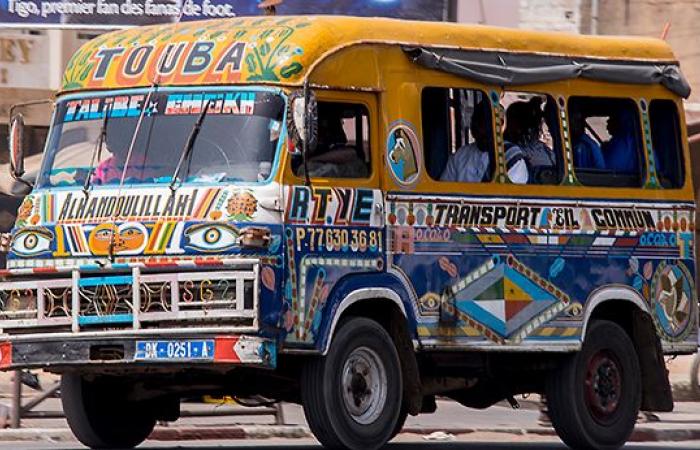In Dakar, an emblematic cultural symbol is threatened with disappearance. The fast cars, these Renault vans in bright colors that have been crisscrossing the streets of the city for around sixty years, face a progressive modernization of urban transport.
Assane Niang, a committed Dakarois, refuses to see gute what he calls “flying works of art”. He created a collective, “because fast tour”, to raise awareness of the cultural value of these vehicles. “Often from fast cars, we know the mentality of Senegalese a little,” he explains.
These colorful minibuses are much more than simple means of transport. Their exterior decorations, made by local artists, convey messages of faith and traditional values. Inscriptions as “barrel” to evoke maternal generosity or “or Deu” to recall the virtues of discretion and open -mindedness are visual expressions of Senegalese culture.
-Inside, fast cars offer a unique social space. Unlike modern transport, they promote conversations between passengers, creating a typically Senegalese friendly atmosphere. “It is a contact people and it is the fast bus that allows us to have this space,” said Niang.
If the authorities judge these vehicles too dilapidated and polluting, they remain one of the most affordable means of transport in Dakar and the only ones available at night for night workers. “It is a means that helps a lot of compatriots to be able to survive in the face of difficult time,” defends the Observer of France 24.
Faced with this scheduled disappearance, the Aassan Niang collective strives to enhance this heritage with tourists and mobilizes artists and stylists for its preservation. His message to the authorities is clear: “It is a heritage to preserve. If it disappears, it is a part of our heritage that we are no longer going to see.”






